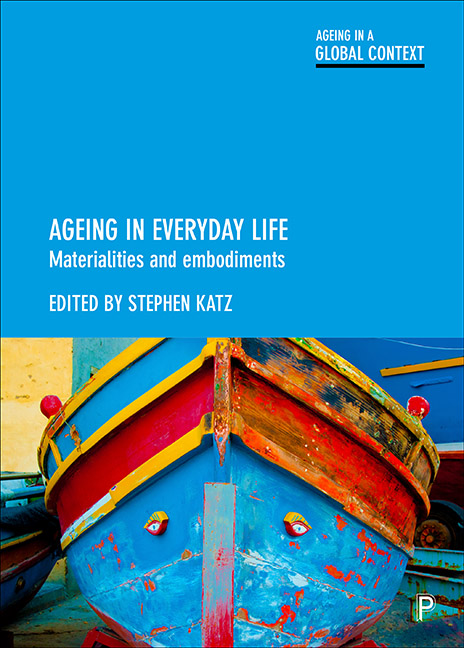Six - Between ageing and ageism: portrayals of online dating in later life in Canadian print media
Published online by Cambridge University Press: 22 April 2022
Summary
Introduction
The internet has become a major vehicle for individuals of all ages who are looking for love and romance (Couch and Liamputtong, 2008; Alterovitz and Mendelsohn, 2009). Extant research has brought attention to sexuality in later life (Neugebauer-Visano, 1995; Gott, 2006; Hurd Clarke, 2006; Skultety, 2007). A recent BBC television series, Last Tango in Halifax, depicting former high school sweethearts reunited 50 years later through online dating, echoed studies of older adults’ internet use for romantic purposes (Carr, 2004; Dickson et al, 2005; Stephure et al, 2009).
Research on online dating in later life and its media portrayals is nascent, but inherits controversies riddling earlier studies. As later life refers to an extensive open-ended period where boundaries between middle age and old age are permeable, the rhetoric of old age can affect those who are not old (yet) and influence them profoundly. Likewise, who is considered as old and with what implications becomes subject to debate and negotiation. Early research on media portrayals of later life found ageist markers of oldness like declining health, loss of physical attractiveness, dried-out romance and presumed social inappropriateness of sexual relationships (McHugh, 2003; Rozanova, 2006, 2010). Research on ageing bodies has found persistent preference for younger women as potential romantic partners among men of all ages, including those over 75 (Alterovitz and Mendelsohn, 2009). This puts social pressure on older women to engage in elaborate beauty work routines to maintain the youthfulness of their bodies and their sexual desirability (Hurd Clarke and Griffin, 2008; Hurd Clarke, 2011). Research into behavior and attitudes among younger people (Valkenburg and Jochen, 2007; Toma and Hancock, 2010; Cali et al, 2013) suggests the continuing stigma of online dating. But complexities, controversies or norms related to online dating in later life are not yet fully explored. The need for such research is underscored by the fact that 41% of Canadians over the age of 65, and 72% of Canadians over the age of 85, are single – either widowed, divorced, separated or never married (Statistics Canada, 2007). These experiences and their media portrayals may have wider implications both for those over 65 and for individuals in mid-life, shaping their perceptions and expectations of ageing.
- Type
- Chapter
- Information
- Ageing in Everyday LifeMaterialities and Embodiments, pp. 99 - 122Publisher: Bristol University PressPrint publication year: 2018

